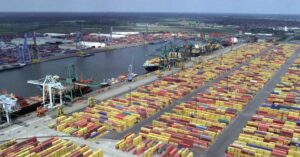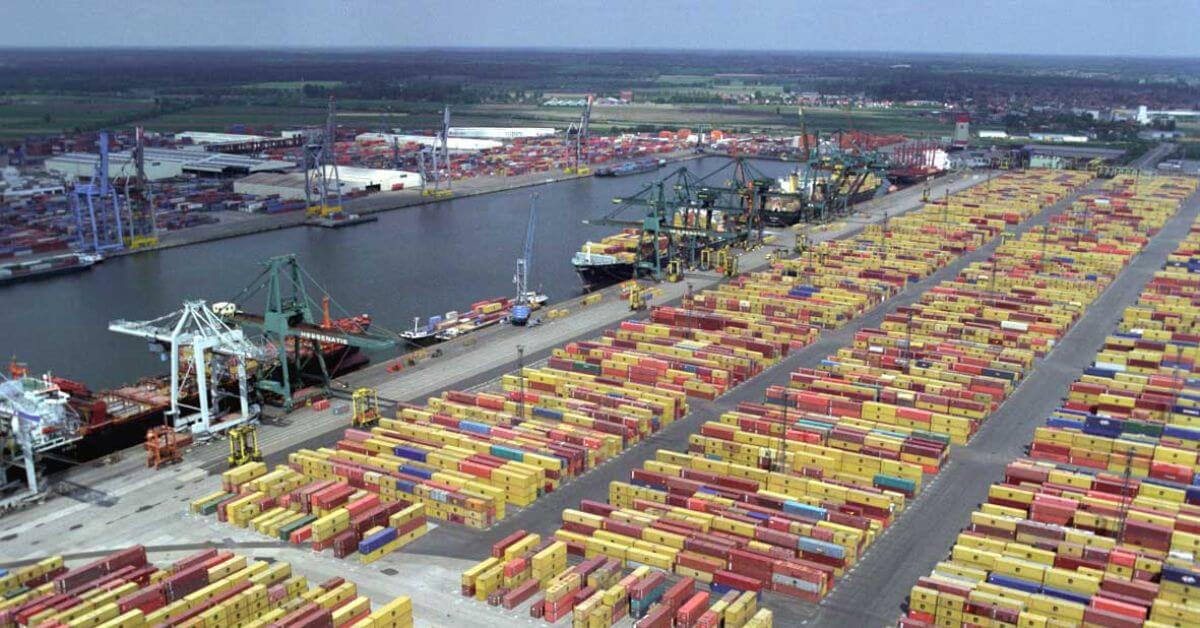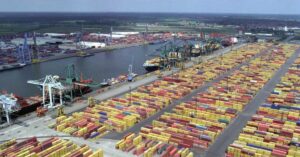
72% Of Logistics Leaders To Invest In Document Automation In 2026; Deep Current Report Reveals
November 26, 2025
Filipino Seafarers Generate ₱1.06 Trillion In Economic Impact In 2024, Study Finds
November 26, 2025

Seagoing access to the Port of Antwerp-Bruges has come to a near halt as pilotage and traffic control personnel joined Belgium’s three-day national strike, significantly disrupting maritime traffic across the country.
The port said the stoppage has created large queues of vessels both offshore and inland, adding pressure to European supply chains.
According to the port authority, the Wandelaar pilot dispatch station was closed from the evening of 24 November and is expected to remain shut until 07:30 on 26 November. This closure has blocked one of the port’s main seagoing access routes.
The LKN route is still open, but its use is restricted due to a pilot launch strike in Vlissingen, where Flemish pilot transfers were suspended from 12:30 to 19:30 on 24 November.
Zeebrugge’s Traffic Control Centre also stopped operations at 19:30 on 24 November, forcing Antwerp to suspend all seagoing movements through the Wandelaar channel. By that evening, 13 outbound and 23 inbound vessels were unable to move.
The strike significantly reduced port operations. Tug availability dropped to about 75% of normal levels, while the Kallo, Zandvliet and Van Cauwelaert locks were out of service.
By 07:30 on 25 November, congestion had increased to 30 outbound and 34 inbound vessels waiting to move. Although around 80% of tugs behind the locks were available at that point, the same three locks remained shut, slowing any recovery.
Zeebrugge, the coastal section of the unified Antwerp-Bruges port, has been fully closed to inbound and outbound traffic since 19:30 on 24 November and will remain closed until 07:30 on 26 November.
Reports from AGF.nl indicated that its closure would last 36 hours, stopping all pilotage via the LKW route. On 25 November, six outbound and four inbound ships were waiting offshore.
Internal harbour movements and the PVD lock are still functioning, but they do not ease the heavy congestion at sea.
The disruption has extended to North Sea Port, where the Zeebrugge closure and the Vlissingen pilot launch strike have blocked seagoing traffic unless vessels use Dutch pilots. By Monday afternoon, 12 vessels bound for Ghent had been affected, and the port expected “dozens” more. By Tuesday morning, 14 ships had been impacted.
The national strike has also halted inland cargo ship operations across Belgium, affecting river and canal logistics. Companies dependent on these waterways for transporting raw materials and goods are experiencing significant delays.
The strike forms part of a coordinated national action by Belgium’s three main labour unions, ABVV/FGTB, ACV/CSC and ACLVB, running from 24 to 26 November.
The unions are protesting against federal budget measures and pension-related plans. Initial reports described these as “aus…” policies, prompting workers across several sectors to join the walkout in large numbers.
Observers described this as Belgium’s largest national strike in the last ten months.
Antwerp-Bruges handled 278 million tonnes of cargo in 2024, including growing volumes of containers and chemical goods. Even short disruptions at such a major European hub risk shifting congestion to other North European ports. Some shipping lines, including Hapag-Lloyd, had already warned customers to expect delays.
References: portnews, marine talk
Source: Maritime Shipping News


